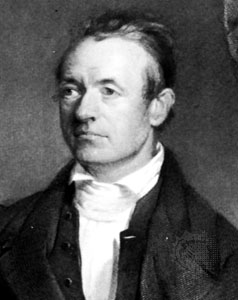The religion of the heart has to do with the truth about God, but not just agreeing with the truth in the mind but also rejoicing about the truth in the emotions. The religion of the heart has to do with living a godly life, but it isn’t just trying to make good choices but also having a new craving for goodness that makes good choices possible. The religion of the heart has to do with church involvement, but it isn’t just to help oneself proceed on the right path but also an expression of joy that one has already found it.
The early evangelical leaders were not the first to talk this way; this idea was voiced throughout Christian history to that point (in particular, the Reformation comes to mind). But these young men (all under 40) were the first to apply the idea boldly to churches, communities, and nations where there were lots of people who by all appearances were committed Christians—people who agreed with every point of true Christian teaching, who were moral and upstanding, and who were strongly involved in church. The evangelicals told these people—even pastors!—that if they didn’t see evidence of the religion of the heart in their lives, they were no different from unconverted heathen going to hell. In fact, they were worse, because they should know better. When the first evangelicals preached to convert people, they weren’t preaching to unbelievers but to professing Christians.
Today throughout most of the West, even in the religious United States, it may be rare to find a person who agrees with sound Christian doctrine, lives a moral life, and is involved in church who does not have the religion of the heart. This is because sound doctrine, living according to God’s standards, and church involvement are no longer popular. But such people do still exist tucked in Bible-centered churches and in regions still ensconced in cultural Christianity (like the part of Pennsylvania where I live). So the preaching of the religion of the heart still matters.
Here are some questions to consider as you look for the religion of the heart in your own life:
- Don’t ask yourself if you agree with Christian statements (as in our doctrinal statement for example). Ask yourself if these statements come out of your mouth even if you’re not asked. For example, if someone asks you if Jesus is Lord, you might say yes, but how often do you mention the name of Jesus Christ if no one asks you?
- Don’t ask yourself if you try your best to do good. Ask yourself how often you cry out to God craving the One who is good.
- Don’t ask yourself if you regularly attend and serve the church. Ask yourself if you are eager to come to worship and learn in church even when no one expects you there.
The religion of the heart is not something you can make in yourself. It’s not something you can decide to have. It’s not something a preacher or a parent or a church can give you. It’s something God gives. So if you don’t have it, ask! Seek! Knock repeatedly! Our gracious God will answer, and you will be saved.

